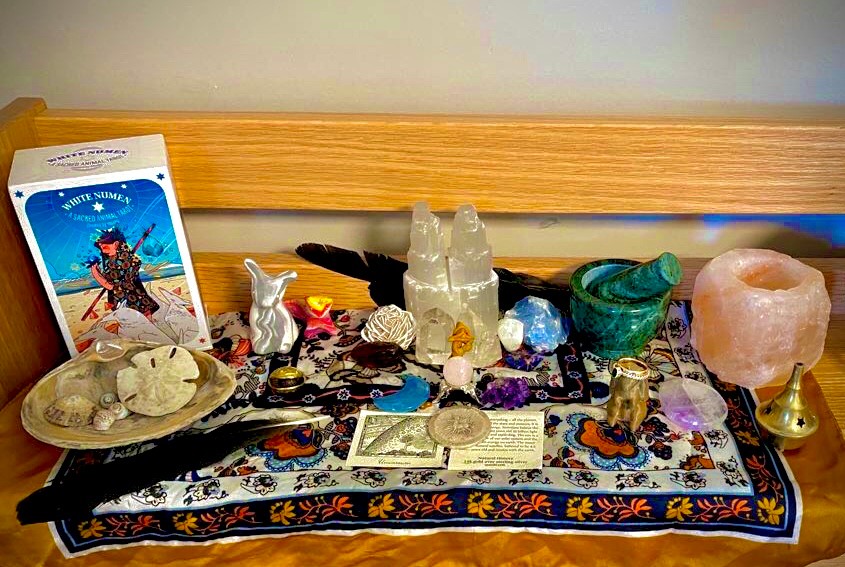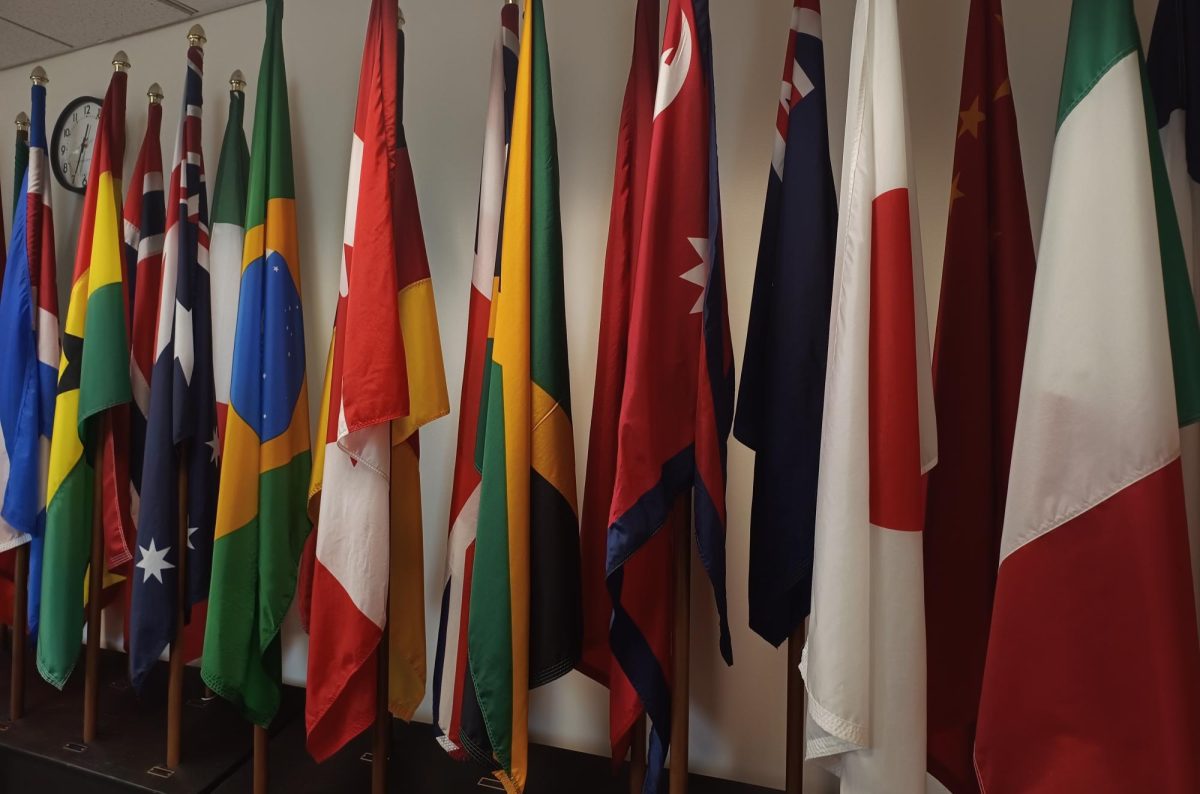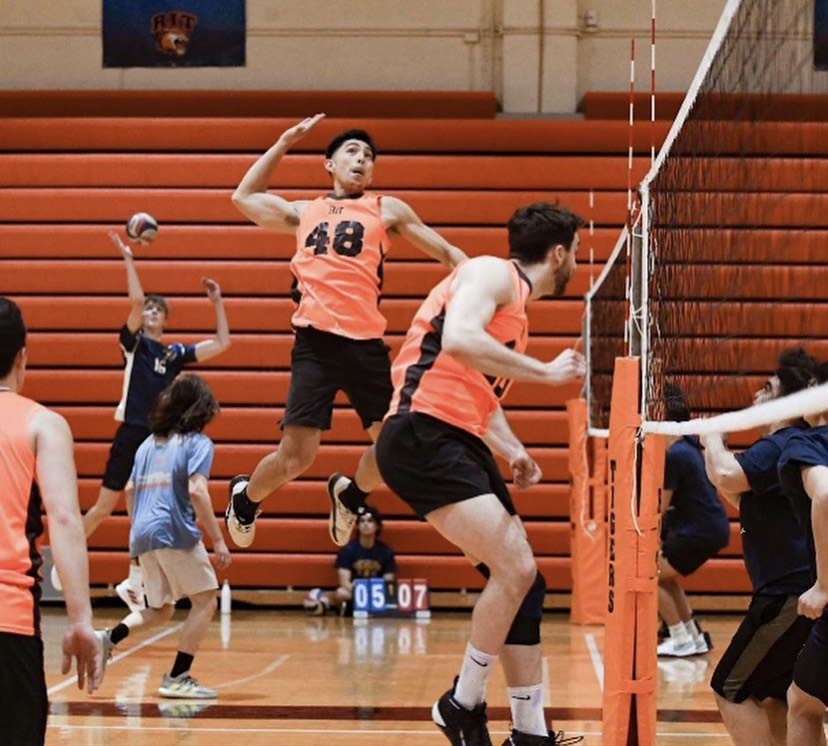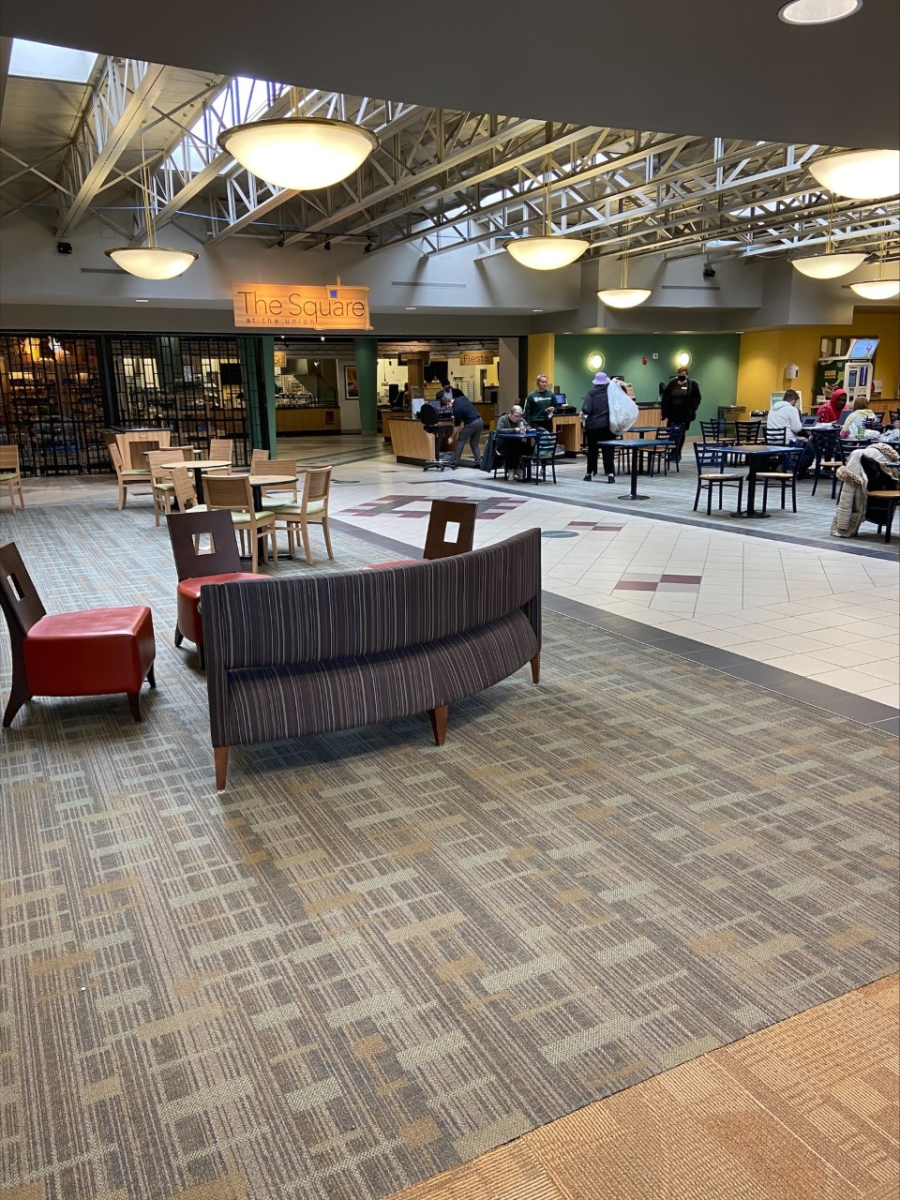
By Cambrie Eckert
Throughout the past year, college students like Parnham and MacKay have searched for meaning to help cope with trauma caused by the COVID-19 pandemic.
For SUNY Brockport sophomore Abigail Parnham, she found meaning in spirituality, which she says has not been a recent development.
“Ever since I can remember, I used to whisper to the trees and talk to the spirits that lived in the woods by my house,” Parnham said. “Whenever I found a little trinket or piece of nature I took home, I would always make sure to thank the world. In a way I have always been spiritual but didn’t always realize that was what I was doing until recently.”
Spirituality has many different forms. It gives religious freedom to the individual to determine what they truly believe in or not.
While spirituality has helped Parnham, college students like Monroe Community College (MCC) junior Gordon MacKay “reconnected to the earth” and found meaning in nature.
“During the start of the pandemic, once things got really bad, I had just left a relationship and it was pretty hard on me,” MacKay said. “My family, mainly my sister, are really into hiking and I had wanted to do it myself to release and get into the mountains. Once I had the opportunity, I drove up to the Adirondacks for a few days and I fell in love.”
His spontaneous decision to hike in the Adirondacks in 2020 helped him fall in love with nature, finding a safe place for his mental health. When he found peace on his hikes, he realized he found what he was looking for.
The Association of American Colleges and Universities explores the benefits of spirituality on students and how this has impacted their social lives, academics and even mental health.
Students who engage in spiritual activities or practice spirituality altogether have been shown to interact with other religious groups or people, find satisfaction within college and helped students develop a sense of understanding about themselves and others.

“My faith helps me to ground myself and reminds me to take time for self-care and reflection,” Parnham said. “During the pandemic, my faith helped me to escape from the world for a while, which I appreciated. It also helped ground me and look at things rationally instead of having total mental breakdowns over things I cannot control directly.”
The number of people who turn to religion or spirituality, like Parnham, increases statistically throughout huge tragedies. The pandemic in particular helped bring people together, helping them find guidance and healing.
Religions have helped many people to cope with what was happening around them. Spirituality in general has become very popular for younger generations, especially college students, throughout this pandemic.
Associate Director of the Hazen Health Center Darlene Schmitt says students who find meaning in life through religion help prevent suicide in themselves and others.
“Strong religious beliefs are a protective factor in suicide prevention and a few of my current clients have referenced their beliefs as a reason why they would not act on their thoughts of suicide,” Schmitt said.

Almost all forms of spirituality pursue a connection with nature, using it in their practices. Although MacKay identifies as atheist, his newfound connection with nature helps his mental health and gives him a sense of peace.
“I gain relaxation and tranquility from nature,” MacKay said. “There is an amount of peace I experience when I am alone on a trail next to an alpine lake or by a campfire in my tent, when I’m just away from other people. I feel at peace with my surroundings and my energy is just lower. There’s no one to drive up my energy and I can just relax.”
For MacKay, although he is not religious, he finds comfort in nature. He says he has tried several times, but has concluded hiking, camping and meditating in nature is the only way he can obtain this sense of belonging and relaxation.
“I remember the exact moment it [nature] benefitted me,” MacKay said. “I remember driving into the [Adirondack] mountains and seeing how beautiful it was. The moment it really struck me was on my first hike in the Adirondacks up Giant Mountain. I got about a mile-and-a-half in, and I was just so at peace. The wind was blowing, I turned on some music, drank some water, had some snacks and I just was so relaxed.”
Nature is MacKay’s escape from reality. When he is able to find time to connect with nature, his mental health improves, which in turn improves his life academically and socially.
Parnham and MacKay have turned to some form of faith, whether it be in nature, spirituality or otherwise in search of meaning, as a way to help them mentally come to terms with the ongoing tragedies across the world.
“People go to a religion or create a religion and have for thousands and thousands of years when they are confronted with a crisis of a question that cannot be answered. They want to know why they’re there, what’s their purpose, and when they can’t have a specific answer, they turn towards making their own answer to be more comfortable,” MacKay said.
This drive for answers pushes some students’ desires to explore other religions or spirituality in search of one that resonates with them. One that can provide them with some sort of answer.
Spirituality and nature have helped students like Parnham and MacKay find a mutual connection with nature in some form throughout the pandemic.




























